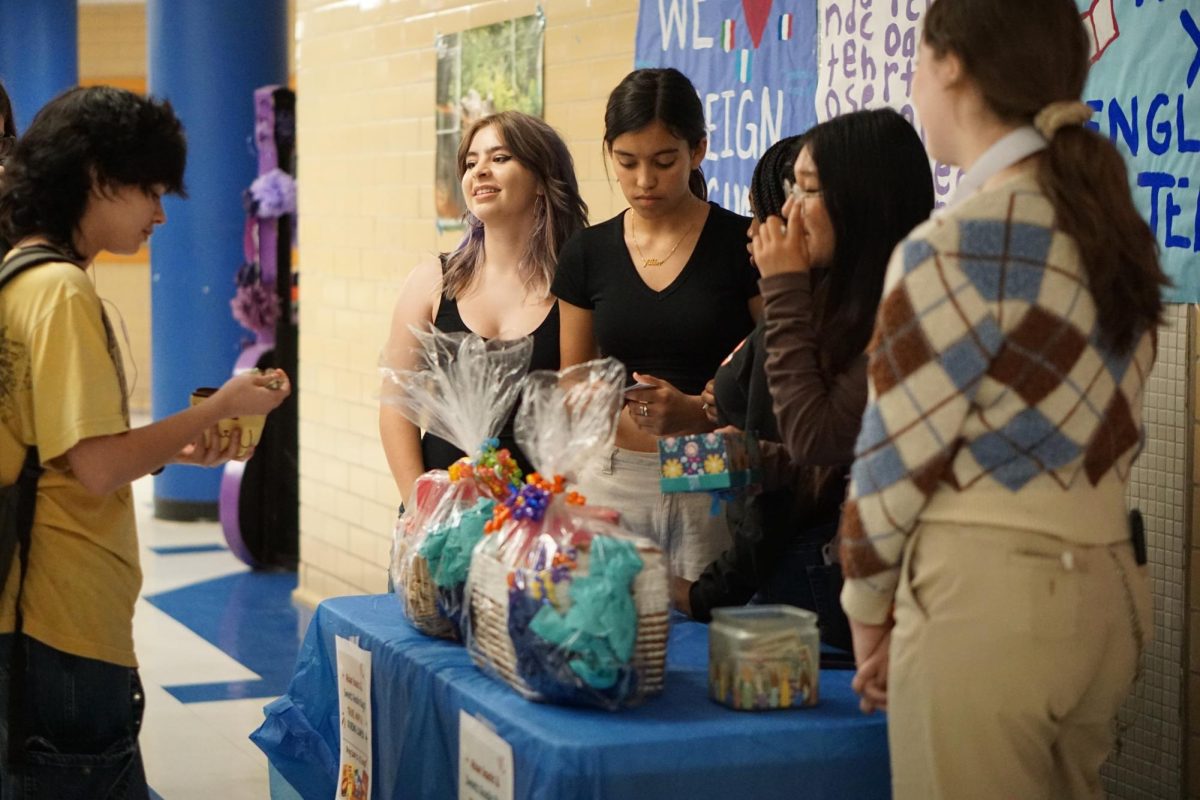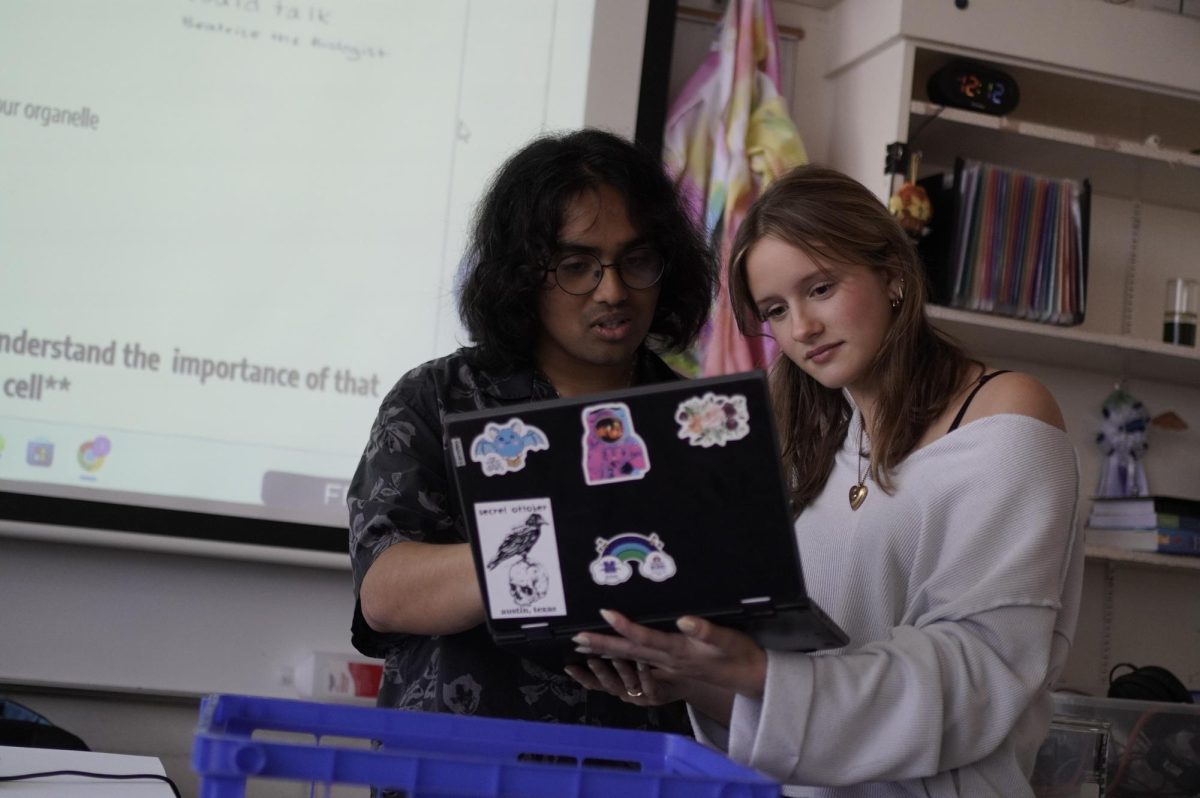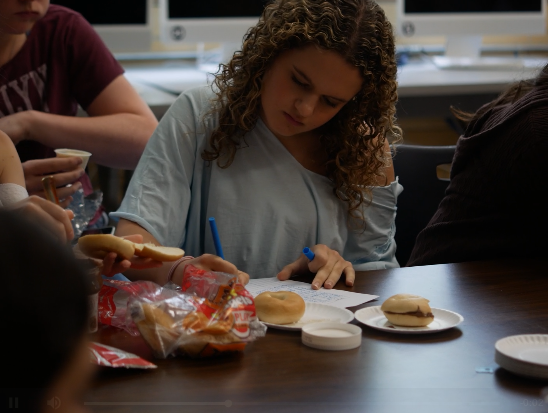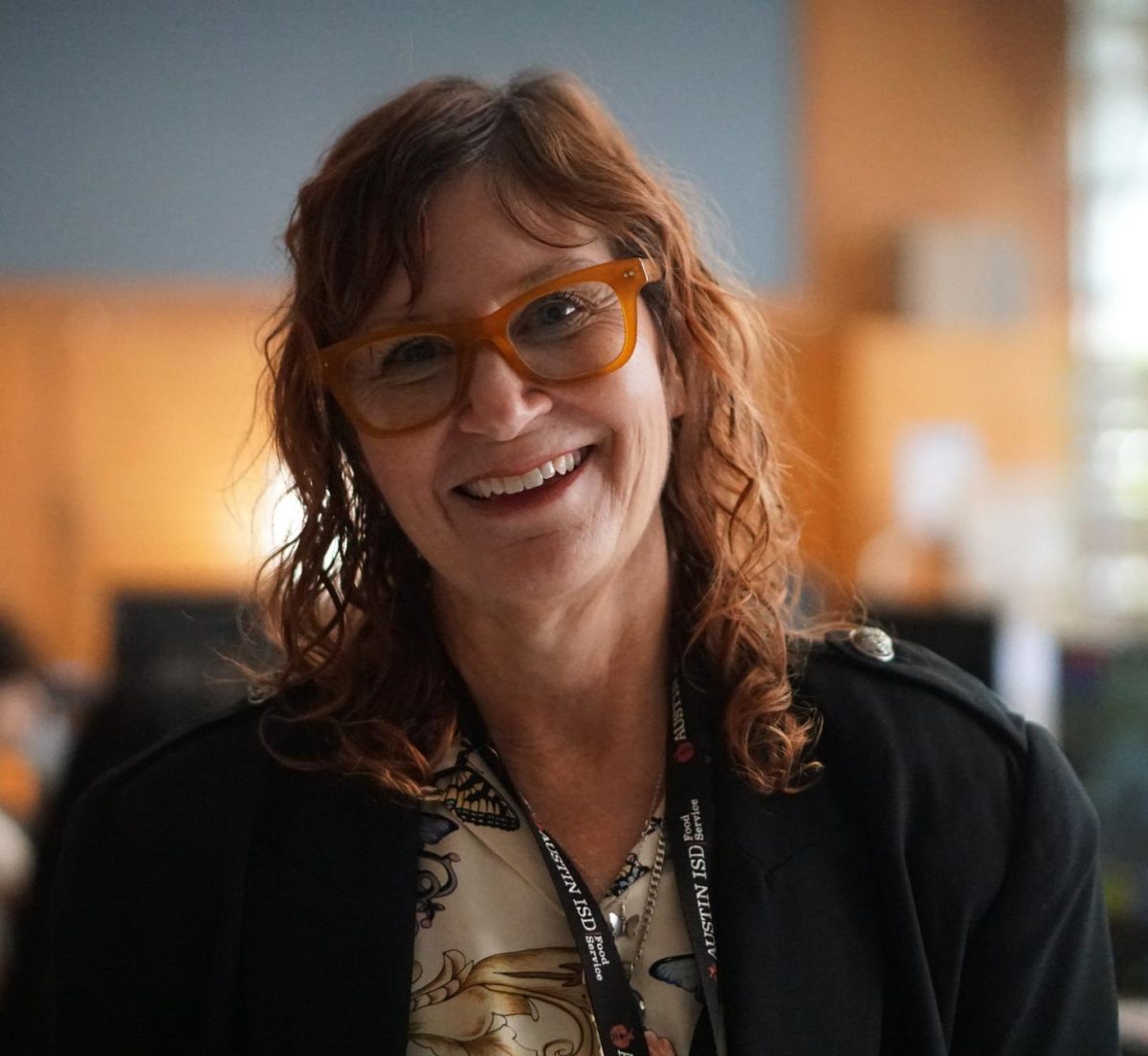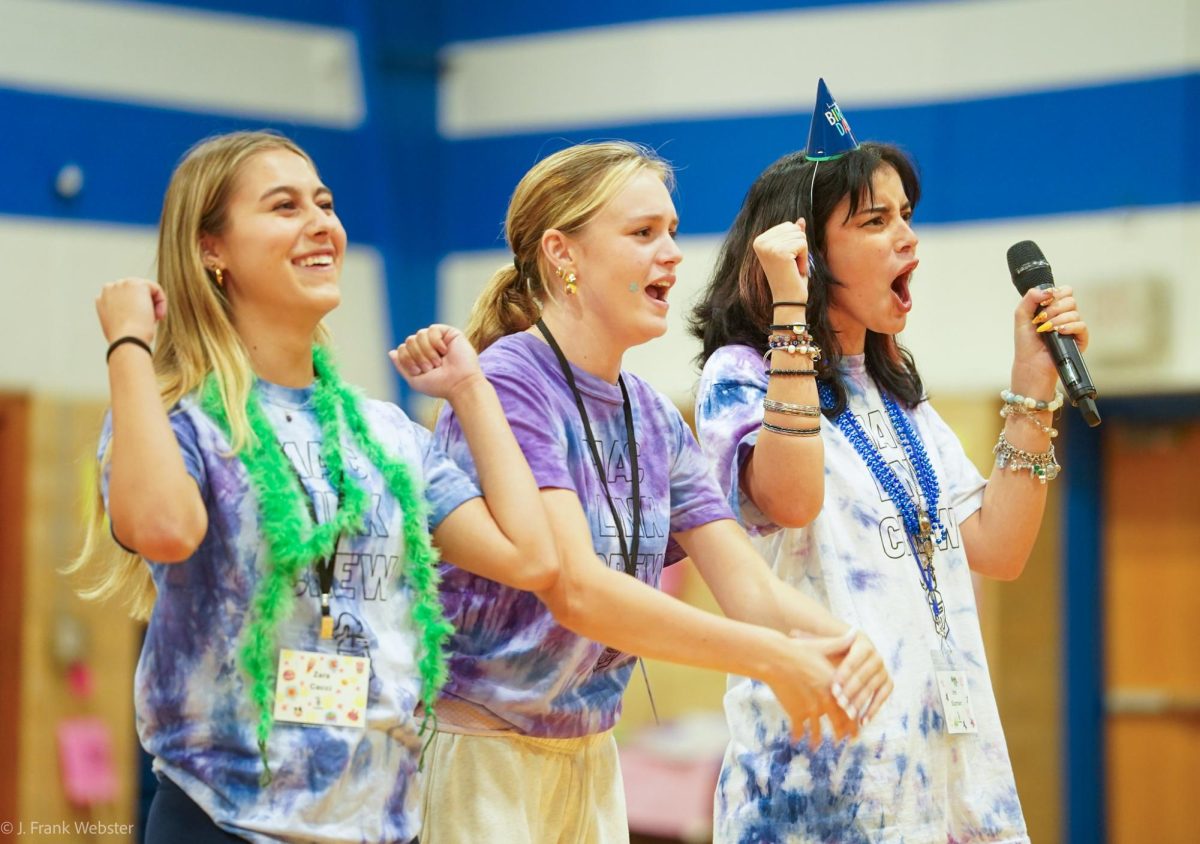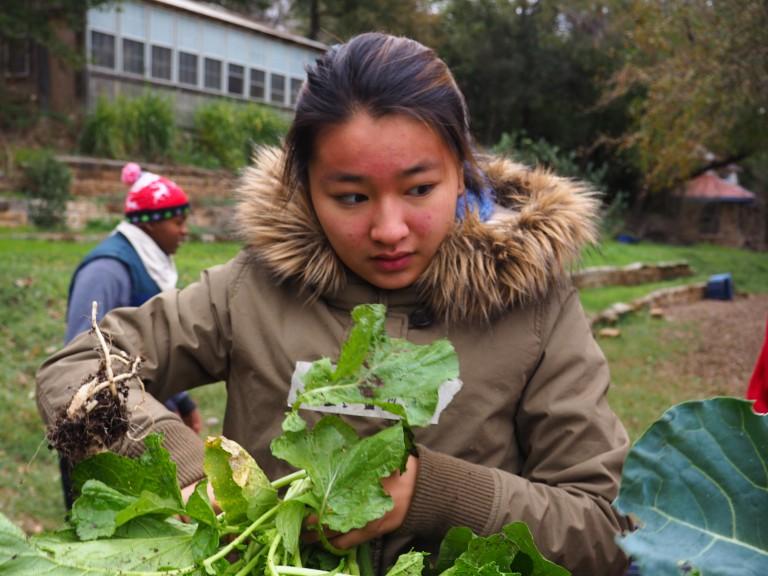
The wind blows calmly on the farm. The vegetables start to sprout out of the deep brown soil, their green stalks reaching for the sky.
Sophomore Kaya Azasu waters the plants and helps nurture them. At school Azasu may seem like an ordinary McCallum sophomore, but outside of school she is making a name for herself as a student leader of a nonprofit organization called Urban Roots.
Urban Roots is an Austin-area organization, led by both youth and adults. The group sprouted out of another parent organization in 2008 that promoted healthy living and helping the community with farming.
The group grows vegetables on the farm to sell at local farmers markets. It became independent in 2011 when its parent organization closed down.
“The fun part about Urban Roots is that everyone there is your age and you can connect with them better,” Asazu said.
Interns for Urban Roots must be between the ages of 14-23 years old and are paid for their work.
“My favorite thing about Urban Roots,” Elsa Roberts (‘19) said, “is that we get to learn about other youth development organizations around Austin, which is super cool because it gives us more opportunities to get involved.”
All the students interviewed said they had found out about Urban Roots through school.
“My Geography teacher Mrs. Carrasco suggested I join, and I looked at the website and thought it was something I was interested in,” Asazu said.
Asazu is one of the students who leads the group. She is part of the logistics team. Members who wish to become leaders go through the Advanced Leadership Academy at Urban Roots and help take on jobs that run the organization.
Asazu is very involved in Urban Roots and has been for a year and a half.
“She is like the glue of the group and she keeps us all together,” Roberts said. “She’s always there.”
“I really got to know Kaya working with Urban Roots,” Roberts added. “She is important to all parts of it [Urban Roots] she’s a great worker in the field; she really steps up when we need to plan events, and overall a great friend and a great person.”
Urban Roots hires 30 students every spring for their spring and summer season and then there are around 12 people in the Advanced Leadership Academy.
Roberts isn’t alone in her assessment that Asazu is an important leader at Urban Roots.
Lorenzo Zarzosa (‘16) said that the work that Urban Roots does “affects the community positively by helping battle hunger in our city and state and show others what they can do to help.”
Urban Roots grows about 25,000 pounds of produce in a year. Forty percent of that goes back to the community through hunger relief organizations and food banks, and 60 percent of the produce is sold at farmer’s markets around town.
Urban roots however is not solely focused on farming.
The group also teaches its youth public speaking skills and money management, among other important life skills.
Asazu said that the group also has worked in the kitchens of local restaurants like Jack Allen’s Kitchen and Thai Fresh, as well as La Condesa.
Urban Roots is not alone in its efforts. All across the country similar organizations are working to end hunger in Texas and the United States.
Groups like Urban Roots meet at an event every year called Rooted in Community. The current members of Urban Roots interviewed for this story encouraged interested students to apply for the program at to http://urbanrootsatx.org.


